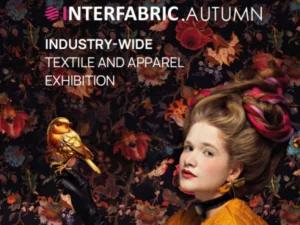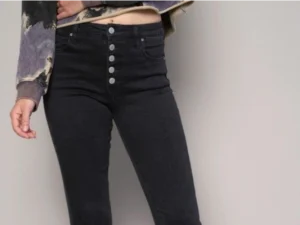Tencel denim fabric is a blend of Tencel and denim, it has gained immense popularity in recent years. In this comprehensive guide, we will delve into the world of Tencel denim fabric, exploring its definition, properties, and benefits. Additionally, we will outline practical examples of how this fabric is used in various industries, such as fashion and home textiles. But before we proceed, let’s first understand the individual fabrics that compose Tencel denim.
Let’s start talking about from following:
- What is Tencel Fabric
- What is the lycra Fabric
- Understanding Tencel Denim Fabric
- Introduction to Lycra Fabric
- The Relationship Between Tencel Fabric and Lycra
What is Tencel Fabric?
Tencel fabric, also known as lyocell, is a sustainable and eco-friendly fabric. it is derived from natural cellulose fibers. It is produced through a closed-loop manufacturing process, in which wood pulp, usually sourced from sustainably managed forests, is dissolved in a solvent and then spun into fibers. Tencel fabric is known for its incredible softness, breathability, and durability.
What is Lycra Fabric
Lycra fabric, also known as spandex or elastane, is a synthetic fiber renowned for its exceptional stretch and recovery properties. It was first introduced in the 1950s and revolutionized the textile industry, enabling the production of comfortable and form-fitting garments. Lycra fabric is known for its high elasticity, durability, and ability to retain shape even after repeated use and washing.
Understanding Tencel Denim Fabric
What is Tencel Denim Fabric?
Tencel denim fabric combines the best qualities of Tencel fabric, denim fabric, and sometimes Lycra fabric. It embodies the softness and breathability of Tencel, the classic look and durability of denim, and the stretch and recovery of Lycra. This unique blend creates a fabric that offers comfort, style, and versatility.
- Definition and Origin of Tencel Fabric
As mentioned earlier, Tencel fabric is derived from natural cellulose fibers, making it a sustainable alternative to conventional fabrics. The manufacturing process of Tencel fabric ensures minimal waste and energy use, resulting in a fabric that has a reduced impact on the environment.

- Properties and Characteristics of Tencel Denim
Tencel denim fabric inherits the softness, smoothness, and silk-like drape of Tencel fabric. It also retains the classic indigo hue, twill weave, and durability of traditional denim fabric. Additionally, Tencel denim fabric can incorporate Lycra fibers, providing it with excellent stretch and recovery properties, enhancing the fabric’s comfort and fit.
Benefits of Using Tencel Denim Fabric
The blend of Tencel, denim, and sometimes Lycra fibers offers several benefits. it makes Tencel denim fabric a popular choice among designers and consumers alike.
- Softness and Comfort
Tencel denim fabric is incredibly soft and gentle against the skin. It offers a luxurious feel and provides maximum comfort, making it ideal for all-day wear.
- Eco-friendliness and Sustainability
Given its origins in sustainable wood pulp, Tencel denim fabric is considered an eco-friendly choice. Its production process utilizes closed-loop technology, ensuring minimal environmental impact and water consumption.
- Breathability and Moisture Absorption
Tencel denim fabric has excellent moisture absorption and breathability, allowing air to pass through the fabric and wicking away moisture from the body. This helps to keep the wearer cool and dry in hot and humid conditions.
- Durability and Resistance to Wrinkles
With the durability of denim, Tencel denim fabric is built to withstand frequent wear and washing. It is also known for its resistance to wrinkles, making it an excellent choice for travel or busy lifestyles.
Introduction to Lycra Fabric
What is Lycra Fabric?
- Definition and Origin of Lycra Fabric
Lycra fabric, also known as spandex or elastane, is a synthetic fiber known for its exceptional stretch and recovery properties. It was developed in the late 1950s by chemist Joseph C. Shivers Jr. and introduced to the textile industry by the company DuPont. Lycra is a registered trademark of the Invista company, which now manufactures this versatile fabric.
- Characteristics and Stretchability of Lycra Fabric
Lycra fabric is renowned for its high elasticity, allowing it to stretch significantly without losing its original shape. It typically contains a significant percentage of Lycra fibers blended with other fabrics such as cotton, polyester, or Tencel to enhance their stretchability. This feature enables garments made with Lycra fabric to conform to body contours and provide a comfortable, flattering fit.

Advantages of Incorporating Lycra into Fabrics
- Enhanced Elasticity and Flexibility
The primary advantage of incorporating Lycra into fabrics is the enhanced elasticity it provides. Lycra fabric allows garments to stretch and move with the body, providing a comfortable and flexible fit. Whether it’s in activewear or everyday clothing, the addition of Lycra fibers ensures that the fabric retains its shape and offers optimum comfort.
- Wrinkle Resistance and Shape Retention
Lycra fabric’s inherent stretchiness contributes to its wrinkle resistance. It can snap back to its original shape after being stretched or wrinkled, making it a popular choice for garments that need to maintain a wrinkle-free appearance. This characteristic is particularly valuable in applications where a crisp and polished look is desired.
- Comfortable Fit and Freedom of Movement
The incorporation of Lycra into fabrics provides the wearer with a comfortable fit and freedom of movement. It allows garments to move and bend with the body, making them suitable for activities that require agility, such as sports and yoga. The elasticity of Lycra fabric ensures that it adapts to body movements, reducing any restriction or discomfort that may arise from rigid fabrics.
The Relationship Between Tencel Fabric and Lycra
The Compatibility of Tencel and Lycra Fabrics
Tencel fabric and Lycra fabric are highly compatible due to their complementary properties. Tencel, with its softness and breathability, provides a luxurious touch and drapes well, while Lycra adds stretch and flexibility. The combination of these fabrics results in a versatile material that offers both comfort and enhanced functionality.
The Benefits of Combining Tencel and Lycra Fabrics
- Enhanced Stretchability and Recovery
By blending Tencel and Lycra fabrics, designers can create garments that stretch and recover exceptionally well. The Lycra fibers in the fabric allow for a high degree of stretch, while Tencel fabric ensures that the garment retains its shape and recovers smoothly after stretching, maintaining its original fit.
- Increased Comfort and Fit
The combination of Tencel and Lycra fabrics provides a garment with superior comfort and fit. Tencel’s softness and moisture-wicking properties contribute to a pleasant wearing experience, while Lycra’s stretch ensures that the garment molds to the body, offering a comfortable and flattering fit.
- Improved Durability and Shape Retention
Blending Tencel and Lycra fabrics enhances the durability and shape retention of the garment. Tencel fibers, known for their strength, add durability to the fabric, making it more resistant to wear and tear. Meanwhile, Lycra fibers provide elasticity and help the fabric maintain its shape and structure over time, preventing sagging or stretching out of shape.
Practical Examples of Tencel-Lycra Fabric Blends
The combination of Tencel and Lycra fabrics is particularly suitable for athletic wear. The stretchiness of Lycra allows for dynamic movements and flexibility during physical activities, while Tencel’s moisture-wicking and breathable properties keep the wearer cool and comfortable. This blend is commonly used in sportswear, yoga pants, and other activewear items that require comfort and performance.
Tencel-Lycra fabric blends are also employed in denim clothing, such as jeans and jackets. The addition of Lycra fibers improves the stretch and ease of movement in denim garments, ensuring enhanced comfort and flexibility. Moreover, Tencel’s softness and breathability contribute to a more comfortable wearing experience, making denim pieces made from this blend a popular choice for both style and comfort.
Conclusion
In conclusion, the combination of Tencel and Lycra fabrics offers a versatile and functional material that provides comfort, stretchability, and enhanced performance. Whether used in athletic wear or denim clothing, this blend offers a multitude of advantages, such as increased elasticity, improved durability, and a comfortable fit. The compatibility and versatility of Tencel-Lycra fabric blends make them a compelling choice for various applications, showcasing the potential of these fabrics in contemporary fashion and beyond.





